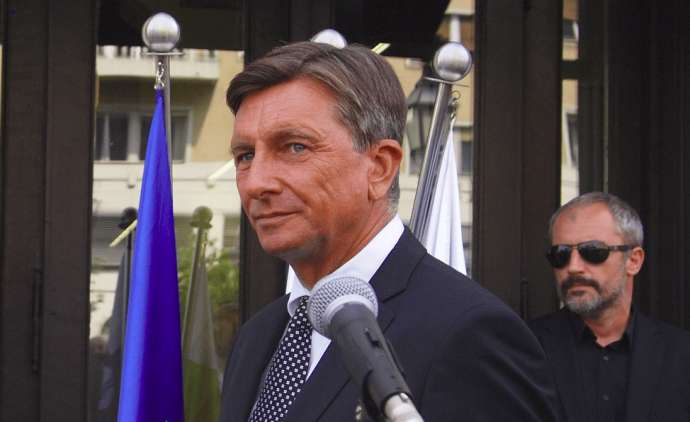STA, 3 May 2022 - President Borut Pahor argued in an interview for Der Spiegel in favour of continued arms supplies to Ukraine and warned of the unpredictability of Vladmir Putin, saying it could lead to a nuclear conflict. He warned against underestimating the Russian military and noted the risk of the conflict spreading to Moldova, Georgia and the Western Balkans.
The president told the German paper that he could unfortunately no longer rule out a nuclear conflict, having lost confidence in the Russian president's judgment. While a nuclear conflict would make no sense, Pahor argued Putin had also not been deterred by the senselessness of the war in Ukraine.
Pahor, whom Der Spiegel described as one of Europe's most experienced statesmen, also stressed that he disagreed with an immediate embargo on Russian energy products. "I am in favour of a gradual reduction of dependence on Russian energy products, even though such a step may seem cowardly to some", Pahor added.
He also touched on criticism from Eastern Europe, where Germany is being accused of dragging its feet when it comes to imposing sanctions on Russia.
Pahor pointed out that if an embargo on Russian fossil fuels were imposed, Germany would suffer substantial economic damage, which explains the concerns. Nevertheless, Germany has radically changed its policy towards Russia, which makes him very proud of Germany.
The president moreover noted that Putin's pursuit of a military victory did not bode well for a start of serious peace negotiations at present.
On the contrary, the war could escalate, as Russia is prepared to make heavy sacrifices to win. In Moldova in particular, there is a strong fear of the conflict spreading to its territory, and the war could, he said, indirectly affect Georgia and the Western Balkans as well.
Pahor gave the interview during a working visit to Berlin on 28 April, where he met his German counterpart Frank Walter Steinmeier. The pair discussed, among other things, Russia's aggression against Ukraine and exchanged views on the situation in the Western Balkans.
On Ukraine, the two presidents agreed on the need for an early end to the Russian attacks and for diplomacy to regain its role and push for a peaceful solution. They said that Ukraine should be assisted in every way, politically, militarily and morally.






